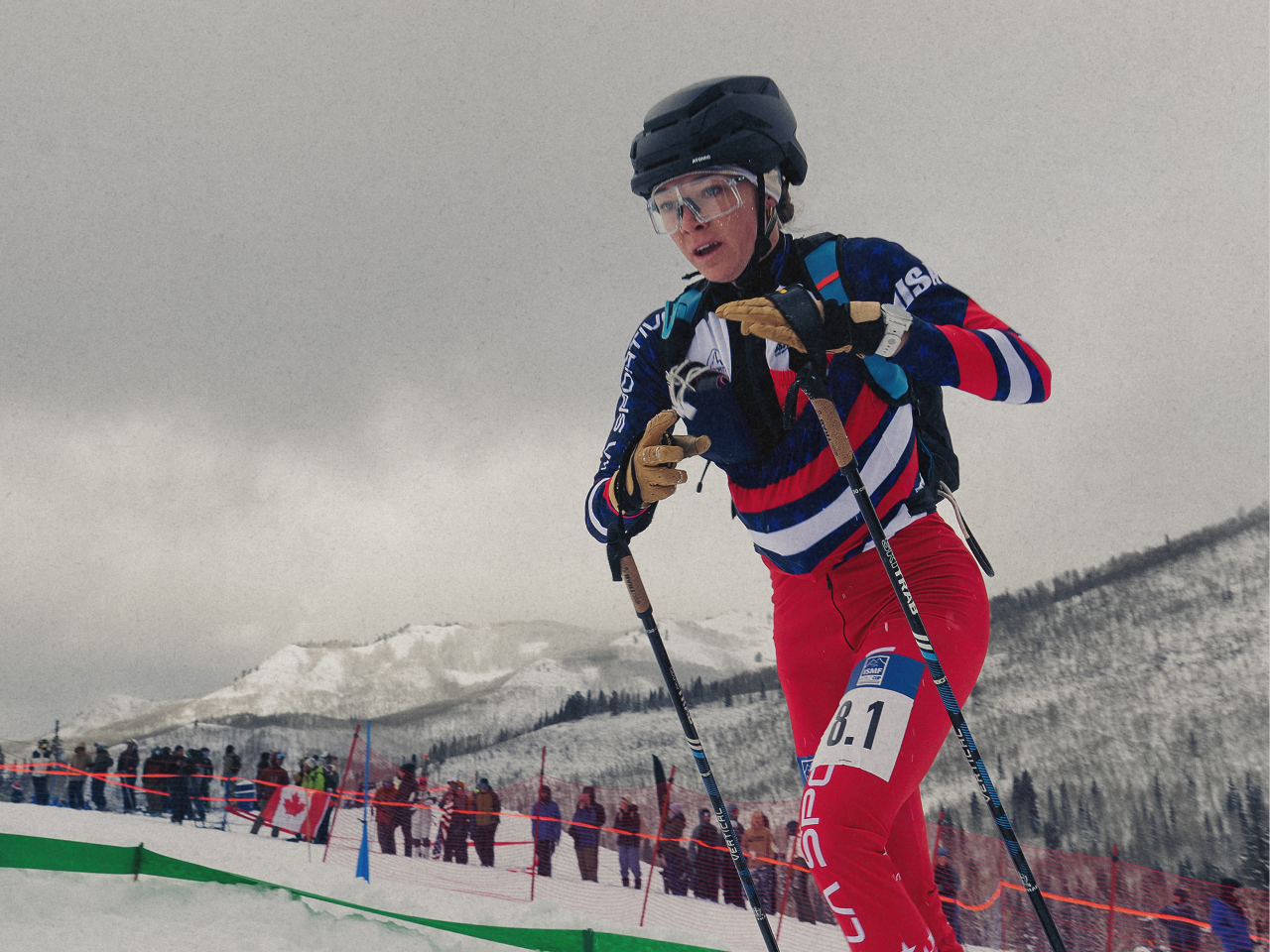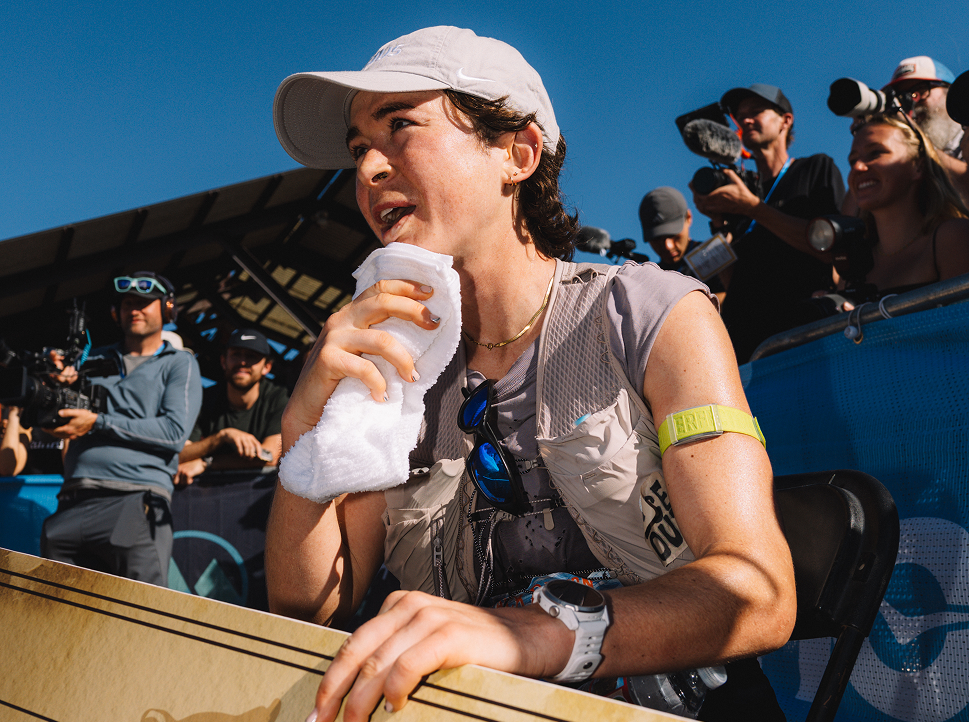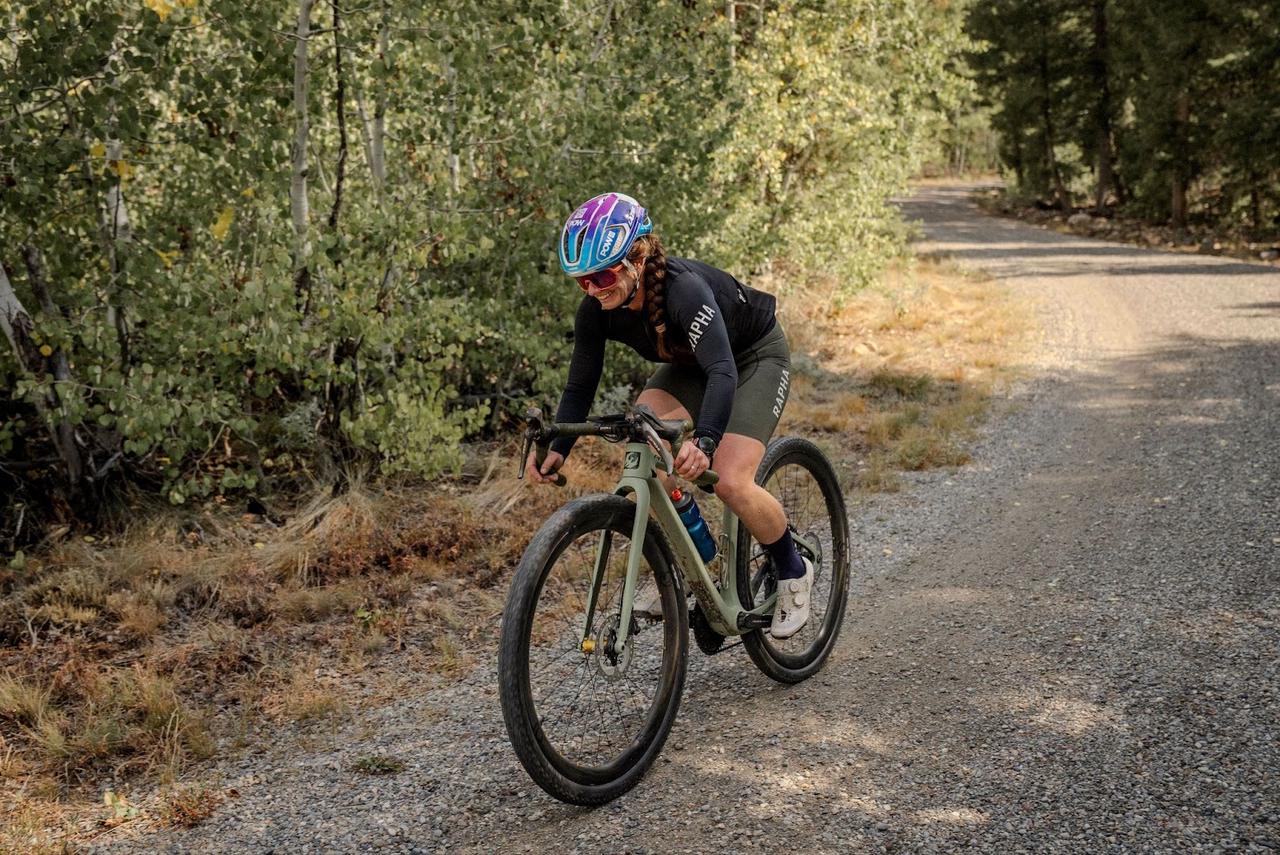High school senior Corbin Coombs is chasing one of the most iconic barriers in distance running: the 4-minute mile. With multiple 4:01 performances already under his belt, Corbin is closing the gap through something deceptively simple: routine. Not flash. Not gimmicks. Just day-after-day consistency.
Building on a Strong Foundation
Corbin came into his senior year with a strong foundation. As a junior, he ran 4:04 and competed at national meets like Brooks PR and HOKA Festival of Miles. But while many athletes look for big changes to find the next breakthrough, Corbin focused on refining what already worked.
"I don't know that I've necessarily changed the running aspect of it," he says. "As far as training is concerned, you go with the times, you study it, and you try to train the best that you know how. If you work the best you can every day, that's kinda all you can do. So that's just what I'm trying to do."
Discipline in the Details
It’s this discipline that defines Corbin’s training. His weekly schedule includes two hard sessions, with strides and aerobic runs rounding out the other days. A typical easy day finishes with six strides: two at 2-mile pace, two at mile pace, and two at 800m pace. These may seem minor, but over months of training, they stack up.
"My coach says that it helps with both speed and recovery. Even if it's just placebo, it still helps," he adds. "Which I'm sure it's not. There’s been a lot of studies about it."
Metrics That Matter
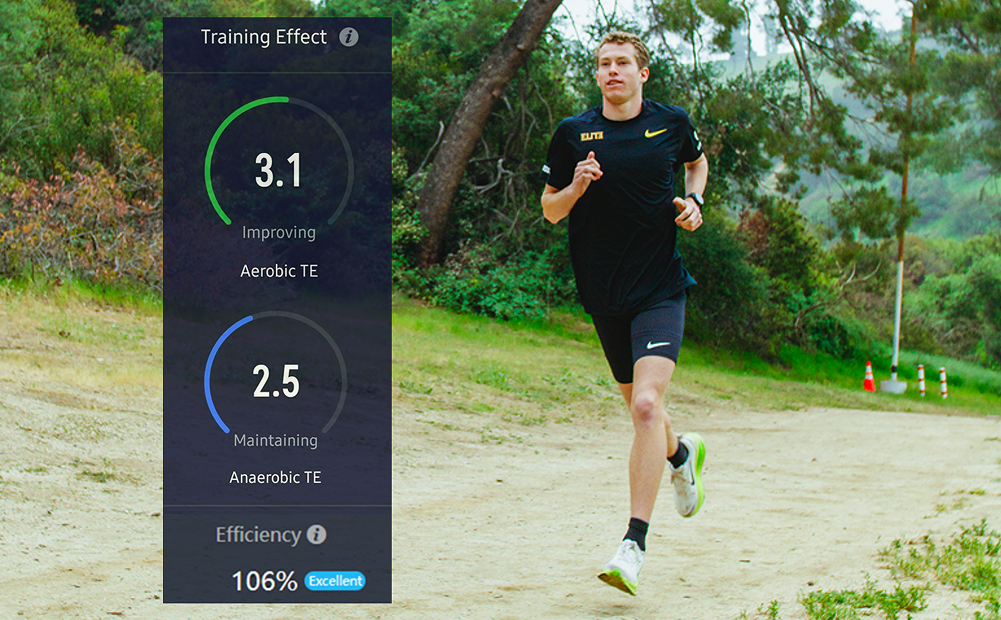
Corbin also embraces technology to track his progress and guide recovery. He starts each morning by checking sleep data and uses post-run metrics like efficiency and aerobic/anaerobic training effect to assess how a workout impacts his fitness.
"I really like that aspect of the watch, that it tells you how efficient your run was. After practice, I check the heart rate, the efficiency, and the aerobic and anaerobic effect. I always like to see it optimized after my speed workouts or improving the aerobic zone after long runs."
Trusting the Process
He understands that improvement isn’t linear, and not every race needs to be a personal best. His mindset: build fitness, trust the process, and let the results come.
"I think your daily routine is what’s the best indicator of your success. I'm not perfect at it, but just try to do the things everyone knows you need to do—like sleep, nutrition, all of that."
Strength in Mindset
That mental game matters too. Corbin has developed the ability to stay calm under pressure, adjust tactics mid-race, and keep setbacks in perspective. Whether he’s had a long day of travel or racing in the New Mexico altitude, he knows how to focus on the task at hand, rather than worry about every imperfect detail.
"A lot of the small aches and pains we feel don't affect us physically unless they affect us mentally."
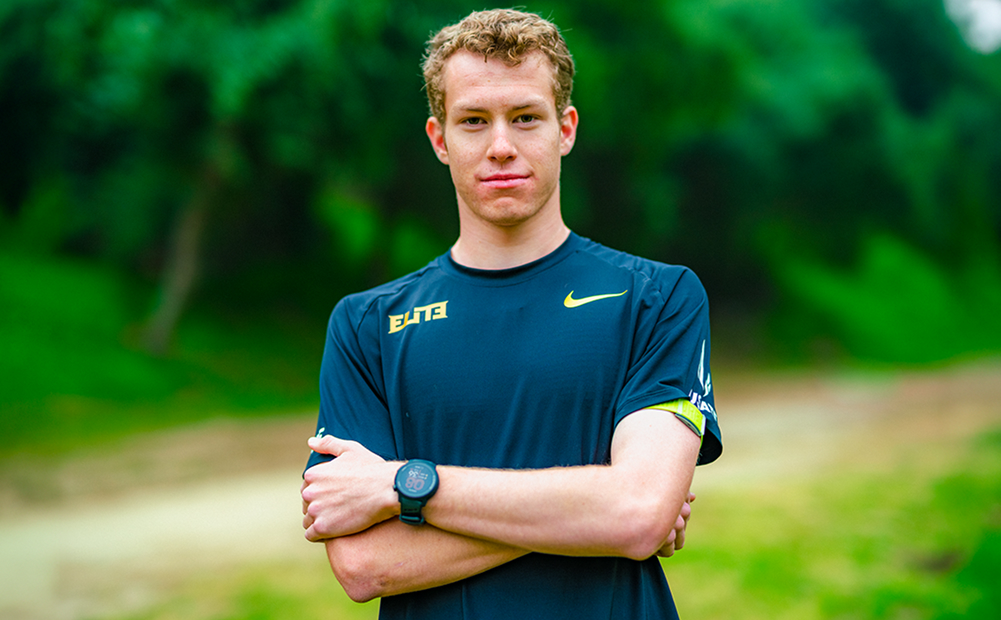
His two 4:01 races tell the story of a maturing racer who’s learning how to pace and compete under different circumstances. "The first time I opened in, like, 2:02 through 800m, maybe 2:03," he explains. "So it was a little too slow. And then this time, it was pretty fast where I was, like, 1:59 through 800m."
While both efforts came agonizingly close, they taught him different lessons. "I think closing hard might be better. But I think finding middle ground might be best—maybe 2:01. It's hard to say. I think the biggest thing would just be to gain fitness and mental toughness."
Focused on the Finish
As he headed into his final races of the season, Corbin wasn't looking for one magical session or a perfect set of splits. He stuck to what he's done all year: show up, follow the routine, and give his best.
And in doing that—he found it.
Breaking the Barrier
At the RunningLane Championships, Corbin Coombs broke the 4-minute mile barrier, finishing in 3:59.23 for second place.
The day before the race, Corbin graduated from high school in New Mexico. Less than 24 hours later, he was racing halfway across the country in Alabama. He woke up at 3:30 a.m. to begin the travel day. "In order to keep that from affecting me," he said, "I took a few naps when I got to the hotel to ensure I wouldn’t be tired while racing."
When the gun went off, he didn’t wait. "I knew that if I wanted to ensure a shot at the sub-4 mile I’d have to get on the pace lights early and stick to them. I ended up having to lead the whole way as a result, but I believe that it was necessary to not count on someone else."
Training That Builds Confidence
In the days leading up to RunningLane, Corbin completed a tune-up workout that gave him confidence he could finally break the barrier. The session was 2 sets of 400, 800, 300, with 30 seconds after each 400, 60 seconds after each 800, and full recovery between sets.
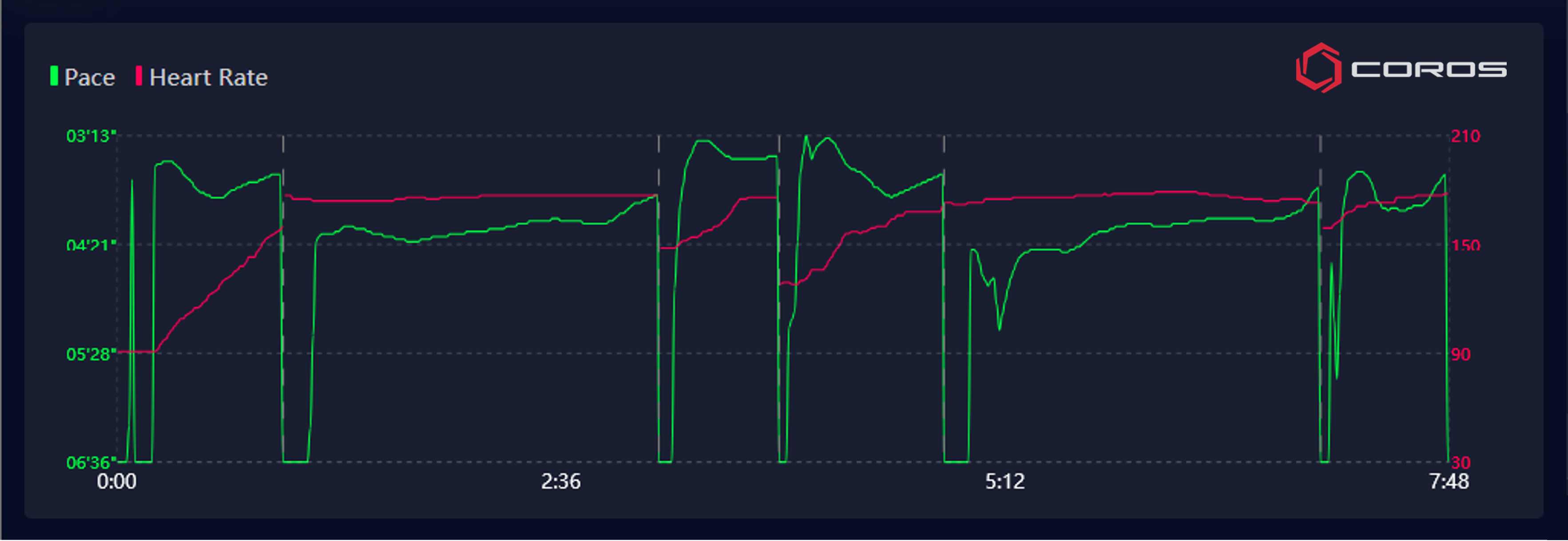
Corbin's splits for the first set were 58.0, 2:11, and 42.5. He then followed it up with 57.7, 2:12, and 45.5.
"This was a pretty solid workout considering how fast a rep goes," Corbin said. "This gave me confidence because I was fatigued going into the 300 reps, so being able to run 42 and 45 second splits is good because it showed that I could run well even while fatigued."
What’s Next: Festival of Miles
Corbin’s not done yet. He’ll toe the line again at the HOKA Festival of Miles on June 5th, aiming to go sub-4 once more—this time against what may be the deepest high school mile field ever assembled.
And if his season has shown anything, it’s that he’s ready for the moment.

/filters:quality(90)/fit-in/970x750/coros-web-faq/upload/images/51756dc4ba0ae6182037f6acb2e33c3f.png)

